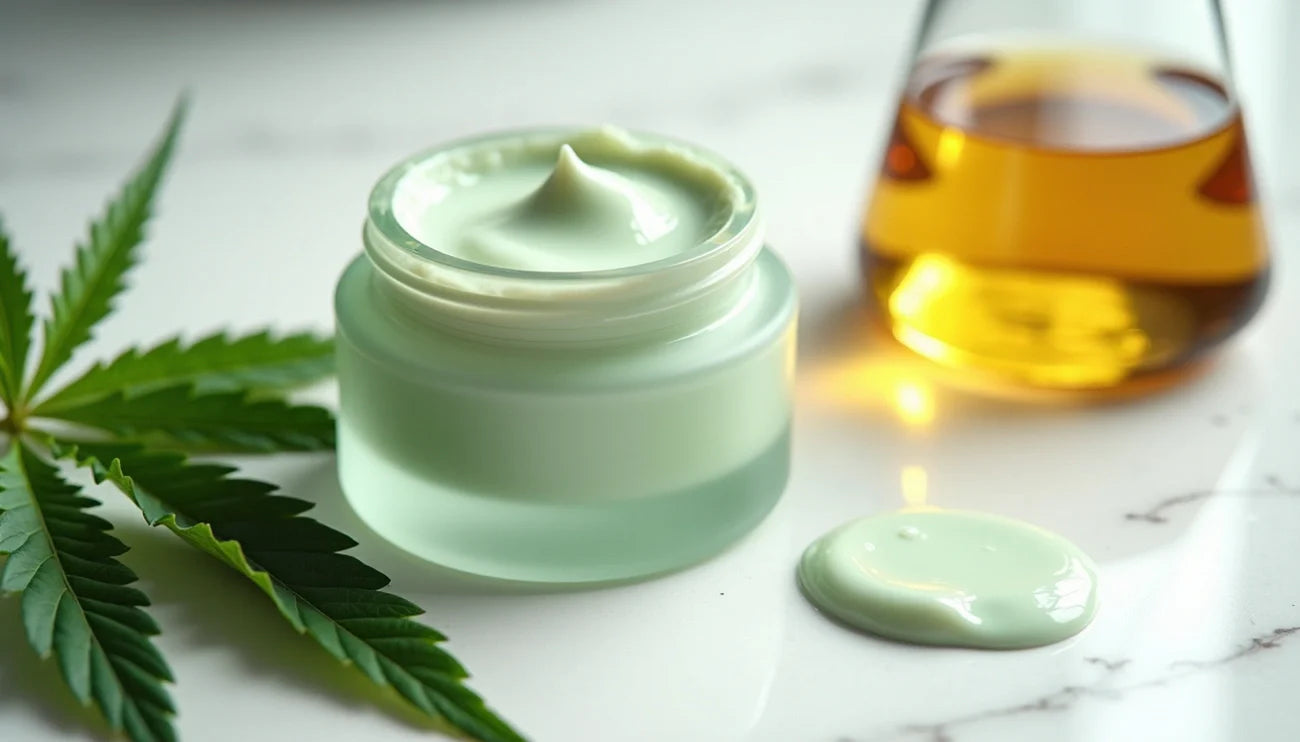CBN for sleep is an emerging topic for those interested in finding natural sleep aids for better wellness. With up to two-thirds of U.S. adults facing occasional sleep troubles, people are keen to explore if CBN could be the solution. Here's a quick look at why it's gaining attention:
- CBN is a cannabinoid found in the Cannabis sativa plant, forming as THC breaks down.
- It's minimally psychoactive and famous for potential sleep aid properties.
- CBN products, like tinctures and gummies, are making their way into the wellness market.
While some tout the potential of CBN to improve sleep quality, research is still preliminary. Historical studies hint at its ability to increase drowsiness, particularly when coupled with THC. However, more in-depth studies are needed to ascertain its effectiveness.

Cbn for sleep basics: - how much thc gummies to sleep - sleep gummies - thc gummies for sleep
Understanding CBN
Let's explore CBN, a fascinating compound from the cannabis plant.
Cannabinoids and the Cannabis Plant
Cannabinoids are chemical compounds found in the Cannabis sativa plant. There are over 100 different cannabinoids, each with unique properties. CBN, or cannabinol, is one of them. It's gaining attention for its potential as a sleep aid.
The Breakdown of THC
CBN forms as THC (tetrahydrocannabinol) breaks down. When cannabis is exposed to air, light, or heat over time, THC transforms into CBN. This process is natural and happens as the plant ages.
Unlike THC, CBN is minimally psychoactive. This means it doesn't cause the "high" that THC is known for. Instead, CBN is being studied for its calming effects and potential to aid sleep.
Why CBN is Unique
CBN's formation through the breakdown of THC makes it unique among cannabinoids. It's not as well-known as CBD or THC, but it's emerging as a potential natural remedy for sleep issues.

This breakdown process is why older cannabis products might have more CBN. Some people claim that these aged products make them feel sleepier.
CBN in the Market
CBN is now available in various forms like tinctures, capsules, and gummies. These products are becoming popular among those seeking natural wellness solutions.
While the science behind CBN for sleep is still evolving, its unique origin and properties make it a promising area of interest for those looking to improve sleep quality naturally.
CBN for Sleep: What the Science Says
The buzz around CBN for sleep is growing, but what does the science actually say? Let's explore the current understanding, backed by research and personal stories.
Limited Studies on CBN
Research on CBN is still in its early stages. Most of the studies we have are from the 1970s and 1980s. These early studies are small and not as comprehensive as we'd like. They suggest that CBN might help with sleep, especially when combined with THC. But on its own, CBN's effects on sleep are less clear.
A more recent study (2022) tried to dig deeper. It was a double-blind, randomized, placebo-controlled study. Participants took CBN alone and in combination with CBD over several nights. The findings? CBN alone showed a reduction in nighttime awakenings and overall sleep disturbance compared to a placebo. However, it didn't affect how quickly people fell asleep or their daytime energy levels. You can check out the study here.

Anecdotal Evidence
While scientific studies are limited, anecdotal evidence is plentiful. Many people report feeling drowsy after using CBN. This is especially true for those using aged cannabis products, which naturally have higher levels of CBN. These personal stories add to the intrigue and interest in CBN as a sleep aid.
Sleep Quality and CBN
The potential of CBN to improve sleep quality is promising. Some users report that it helps them sleep more soundly and wake up less often during the night. However, it's important to note that these effects are not the same for everyone. The science is still catching up to these personal experiences.
In summary, while CBN for sleep is a topic of interest, more high-quality research is needed to fully understand its effects and potential benefits. For now, CBN remains a promising option for those exploring natural ways to improve sleep quality.
Comparing CBN and CBD
When it comes to cannabinoids, CBN and CBD are often mentioned together. But what sets them apart? Let's break it down.
Cannabinoid Receptors
Both CBN and CBD interact with the body's endocannabinoid system, which includes cannabinoid receptors. These receptors play a role in regulating mood, pain, and sleep. However, CBN and CBD engage with these receptors differently. CBN has a mild affinity for the CB1 receptor, which is why it can have slight psychoactive effects in larger doses. CBD, on the other hand, doesn't bind strongly to these receptors, making it completely non-psychoactive.
Non-Psychoactive Nature
One of the key differences is that CBD is entirely non-psychoactive. This means it won't alter your mind or make you feel "high." CBN, while mostly non-psychoactive, can cause mild effects if taken in higher amounts. This is due to its origin as a breakdown product of THC, the compound responsible for the high in cannabis.
Sleep Benefits
Both CBN and CBD are touted for their potential sleep benefits, but they work in different ways. CBN for sleep is gaining attention because many users report feeling drowsy and relaxed. This could be due to its mild interaction with the CB1 receptor. On the other hand, CBD is often used to help manage anxiety and pain, which can indirectly improve sleep quality by promoting relaxation and reducing discomfort.
While both cannabinoids offer potential sleep benefits, they do so through different mechanisms. Exploring which one works best might depend on individual needs and how each person's body responds to these compounds.
Potential Benefits and Risks of CBN
Sleepiness
When it comes to CBN for sleep, many people are curious about its potential benefits. Some studies suggest that CBN may help improve sleep quality by reducing nighttime awakenings and overall sleep disturbances. Participants in a study who took 20 mg of CBN reported fewer awakenings during the night compared to those who took a placebo. However, it's important to note that while CBN might make you feel drowsy, it doesn't seem to cause daytime fatigue, which is a common concern with many sleep aids.
Pain Management
CBN is also being explored for its potential in pain management. In a study conducted on rats, CBN was found to relieve muscle and joint pain, especially when combined with CBD. This combination showed promise in conditions like fibromyalgia. While more research is needed to fully understand its effects on humans, these findings are encouraging for those seeking alternative pain relief options.
Side Effects
The side effects of CBN are not well-documented, primarily due to the lack of extensive research. However, historical studies involving oral doses of up to 1200 mg CBN did not report significant safety concerns or toxicity. This suggests that CBN might be relatively safe, but it's always wise to consult a healthcare provider before trying new supplements, especially if you are on other medications.
While CBN is mostly non-intoxicating, taking it in very large amounts might lead to mild psychoactive effects because of its slight interaction with the CB1 receptor. This is why starting with a lower dose and gradually adjusting as needed can be a good approach.
In summary, while CBN shows promise in promoting sleep and managing pain, it's crucial to be aware of the potential risks and consult with a healthcare professional to ensure it's a safe choice for you.

Frequently Asked Questions about CBN for Sleep
Does CBN actually help with sleep?
CBN for sleep is a topic of growing interest. Some early studies and anecdotal evidence suggest that CBN might help improve sleep quality by reducing nighttime awakenings and overall disturbances. In one study, participants who took 20 mg of CBN reported fewer awakenings compared to those who took a placebo. However, more research is needed to fully understand its effects and potential benefits.
What are the side effects of CBN?
The side effects of CBN are not well understood because there aren't many detailed studies. From what we know, CBN appears to be relatively safe when taken in moderate doses. Some people might experience changes in appetite, dizziness, or fatigue, but these effects are not well-documented. It's always a good idea to start with a low dose and see how your body reacts.
Does CBN make you groggy the next day?
One of the concerns with sleep aids is feeling groggy the next day. With CBN, this doesn't seem to be a major issue. In studies, participants did not report significant daytime fatigue after taking CBN. The calming effect of CBN might help you relax at night without leaving you feeling sluggish the next morning. However, individual responses can vary, and finding the right dosage is key to avoiding next-day grogginess.
At Sow Eden, we believe in the power of nature to support holistic wellness. Our premium CBD products are crafted with care, using only the finest organic ingredients to help you achieve a balanced and restful life. By incorporating CBN into our offerings, we aim to provide a natural option for those seeking to improve their sleep quality.
Our approach is simple: blend the best of what nature has to offer with our expertise in wellness. We carefully select botanicals like ginger root and lemon peel to complement our CBD, ensuring each product is both effective and soothing. This commitment to quality and natural ingredients sets us apart.
While research on CBN for sleep is still evolving, early findings and customer feedback are promising. Many users report experiencing fewer nighttime disturbances and improved sleep quality. However, as with any wellness product, individual experiences can vary, and we always recommend starting with a lower dose to find what works best for you.
Find the benefits of CBN and explore our range of sleep-enhancing products. Whether you're looking for a tincture to help you unwind or a balm to soothe your senses, Sow Eden has you covered. Rest assured, our holistic approach to wellness will support you on your journey to better sleep and overall well-being.




